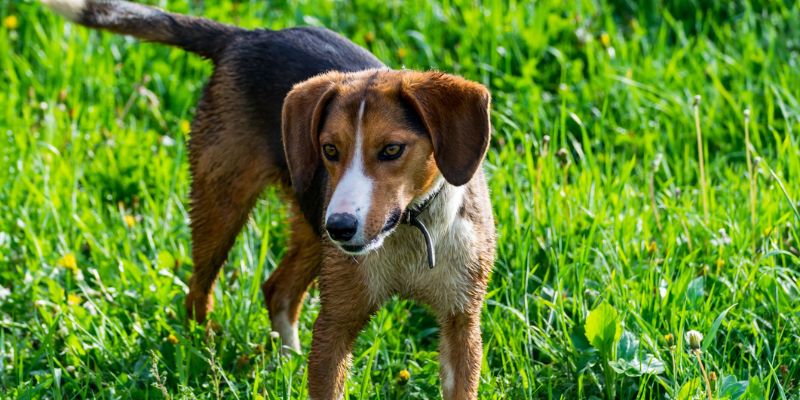Harriers are known for their agility, intelligence, and friendly nature. As a proud owner of a Harrier or someone considering adding one to your family, it’s essential to be aware of their potential health concerns. This article aims to provide you with insights into “Are Harriers Prone to Any Health Problems?”, so you can take appropriate steps to keep them in good shape.
Are Harriers Prone to Any Health Problems?
Harriers, like any other dog breed, can be susceptible to certain health problems. Being aware of these issues can help you detect them early and seek appropriate veterinary care. Here are some general health considerations and common ailments that Harriers may experience:
General Health Considerations
- Regular exercise and a balanced diet are vital for maintaining your Harrier’s overall health.
- Adequate mental stimulation and social interaction can contribute to their well-being.
- Regular check-ups with a veterinarian can help monitor their health and identify any issues early on.
Common Ailments in Harriers
- Hip dysplasia
- Elbow dysplasia
- Hypothyroidism
- Allergies and skin problems
- Eye disorders
- Bloat
- Epilepsy
- Dental issues
- Obesity
- Ear infections
- Heart conditions
Age-Related Conditions
As Harriers age, they may become prone to certain health conditions. It’s essential to provide them with extra care and attention during their senior years. Here are some age-related concerns to watch out for:
Hip Dysplasia
Hip dysplasia is a common orthopedic condition that affects many dog breeds, including Harriers. It is characterized by an improper fit between the hip joint’s ball and socket, leading to discomfort and reduced mobility.
Elbow Dysplasia
Elbow dysplasia is another orthopedic condition that can occur in Harriers. It involves abnormalities in the development of the elbow joint, causing pain and lameness.
Hypothyroidism
Hypothyroidism is a hormonal disorder that affects the thyroid gland. It can result in weight gain, lethargy, hair loss, and skin issues in Harriers.
Allergies and Skin Problems
Harriers can be prone to allergies, which can manifest as skin irritation, itching, and recurrent infections. Identifying and managing the allergens can help alleviate their discomfort.
Eye Disorders
Some Harriers may develop eye disorders such as cataracts, progressive retinal atrophy (PRA), or glaucoma. Regular eye examinations are essential to catch these conditions early and seek appropriate treatment.
Bloat
Bloat, also known as gastric dilation-volvulus (GDV), is a severe and potentially life-threatening condition that can affect Harriers. It involves the twisting of the stomach, which can cut off blood supply and lead to organ damage.
Epilepsy
Epilepsy is a neurological disorder characterized by recurrent seizures. While it can affect Harriers, it can be managed with medication and regular veterinary care.
Dental Issues
Harriers, like many other dog breeds, are prone to dental problems such as periodontal disease, tooth decay, and gum infections. Regular brushing and professional dental cleanings are essential for maintaining their oral health.
Obesity
Harriers can easily gain weight if they are overfed or lack exercise. Obesity can lead to various health issues, including joint problems and an increased risk of other diseases. Maintaining a healthy weight through portion control and regular exercise is crucial.
Ear Infections
Harriers’ long, floppy ears can trap moisture and debris, making them prone to ear infections. Regular cleaning and inspection can help prevent and detect any issues early on.
Heart Conditions
Some Harriers may develop heart conditions such as mitral valve disease or dilated cardiomyopathy. Regular veterinary check-ups and appropriate diagnostic tests can help identify these conditions and manage them effectively.
FAQs About Harrier Health
What is the life expectancy of a Harrier?
On average, Harriers have a lifespan of 10 to 12 years. However, with proper care and a healthy lifestyle, they can live even longer.
How often should I take my Harrier to the vet?
It is recommended to take your Harrier for an annual wellness check-up. Regular vet visits can help monitor their health and detect any potential issues early on.
Are Harriers prone to obesity?
Yes, Harriers can be prone to obesity if not provided with proper exercise and a balanced diet. Monitoring their food intake and engaging them in regular physical activities is crucial for weight management.
Can Harriers be affected by hip dysplasia?
Yes, Harriers, like many other dog breeds, can be affected by hip dysplasia. Regular exercise, maintaining a healthy weight, and proper breeding practices can help reduce the risk.
Are Harriers more susceptible to allergies?
Harriers can be prone to allergies, which can manifest as skin problems and other allergic reactions. Identifying and avoiding allergens can help manage their symptoms.
Do Harriers require special dental care?
Harriers, like most dogs, require regular dental care, including brushing their teeth and professional cleanings. This helps prevent dental issues such as periodontal disease and promotes good oral health.
Conclusion
While Harriers are generally healthy dogs, they can be prone to certain health problems. Understanding these issues and taking proactive measures can help ensure their well-being and longevity. Regular veterinary check-ups, a balanced diet, regular exercise, and proper grooming practices are key to keeping your Harrier happy and healthy for years to come.





